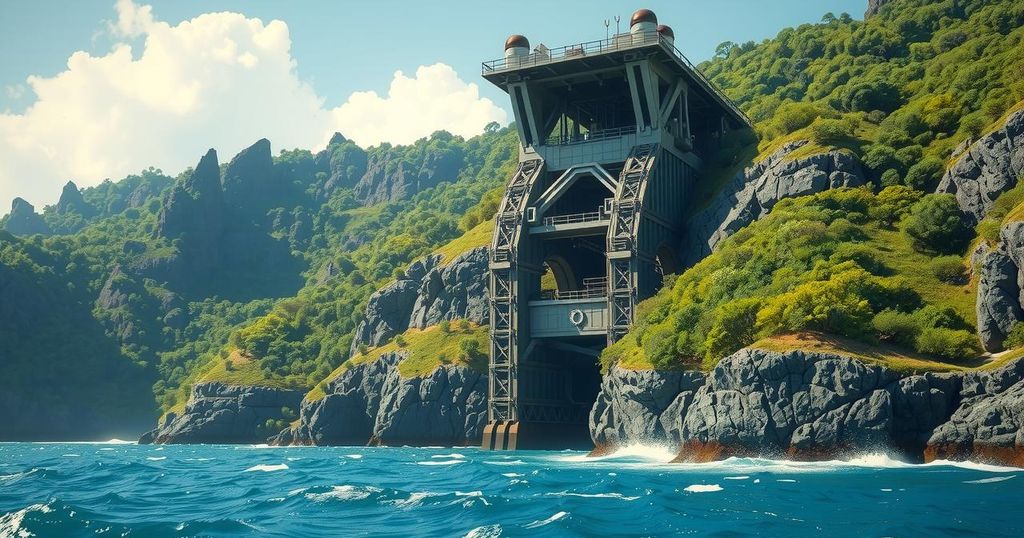In Senegal, the world’s largest mining dredger is rapidly depleting the coastal region vital for vegetable production, displacing thousands of farmers. While Eramet contends that its operations are beneficial and fairly compensated, locals argue that their livelihoods are severely compromised. Community and governmental pushback is mounting for better oversight of mining practices to protect both local welfare and environmental integrity.
In Senegal, a massive mining dredger, touted as the largest in the world, is rapidly depleting the country’s fertile coastal strip, primarily known for vegetable cultivation. This operation has created a visible 23-kilometer scar as the giant dredger extracts zircon used in ceramics and construction. The machine operates on a man-made lake, continuously drawing mineral sands while moving across the landscape. The locale under threat is Lompoul, a picturesque desert popular with tourists along Senegal’s Atlantic coastline.
The mining venture, overseen by the French firm Eramet, has forced the displacement of thousands of farmers over the past decade. While Eramet asserts that its practices are above reproach and even plans to enhance its mining operations, locals claim the firm is damaging a fragile ecosystem and disregarding community welfare. Gora Gaye, the mayor of Diokoul Diawrigne, reflects the community sentiment by stating that the mining has led only to “despair and disillusion” among the residents.
In response to growing discontent, including from local tourism operators and farmers, Senegal’s President Bassirou Diomaye Faye has highlighted the need for improved governance in extractive practices, insisting that local populations must benefit from such projects. His government was elected to reform the historical exploitation of Senegal’s resources and curtail the influence of former colonial powers.
Eramet’s mining operations began in 2014 after receiving governmental authorization and have since claimed that they adhere to agreements with the Senegalese state. They report providing compensation significantly exceeding local guidelines; however, critics deem this compensation insufficient to account for the irreversible loss of income from fertile farmland. Locals acknowledge having lost vital agricultural resources that previously yielded the majority of fresh produce consumed in the country.
Despite claims of rehousing and building modern infrastructures for displaced families, many affected individuals, like Omar Keita, lament their plight, saying, “We want our land back and our village rebuilt…” They contend that promised benefits have not materialized and describe their current living conditions as dire, replete with challenges to their livelihood. While Eramet asserts its contributions to the local economy and adherence to laws, those displaced argue the shift has led to a significant decrease in their economic conditions and well-being.
Community leaders, such as Mayor Gaye, are now advocating for a moratorium on mining activities until comprehensive assessments of environmental impacts are conducted. They express concern that the benefits cited by Eramet do not justify the pervasive harm inflicted on local communities and ecosystems. However, Eramet has refuted the need for a pause, suggesting that halting operations would jeopardize employment and the state’s economic growth. As mining continues, the ecosystem of Lompoul remains at risk, highlighting the clash between economic development and environmental stewardship in Senegal.
The ongoing mining operations in Senegal, led by Eramet, starkly illustrate the tensions between economic ambitions and environmental preservation. While the company emphasizes its compliance and benefits to the economy, the local communities express significant dissatisfaction regarding compensation and their deteriorating living conditions. As calls for a moratorium on mining grow, the situation underscores the dire need for responsible management of natural resources that prioritizes the welfare of affected populations and ecological sustainability. The future of Senegal’s agricultural landscape hangs in the balance as this debate unfolds.
Original Source: www.france24.com






